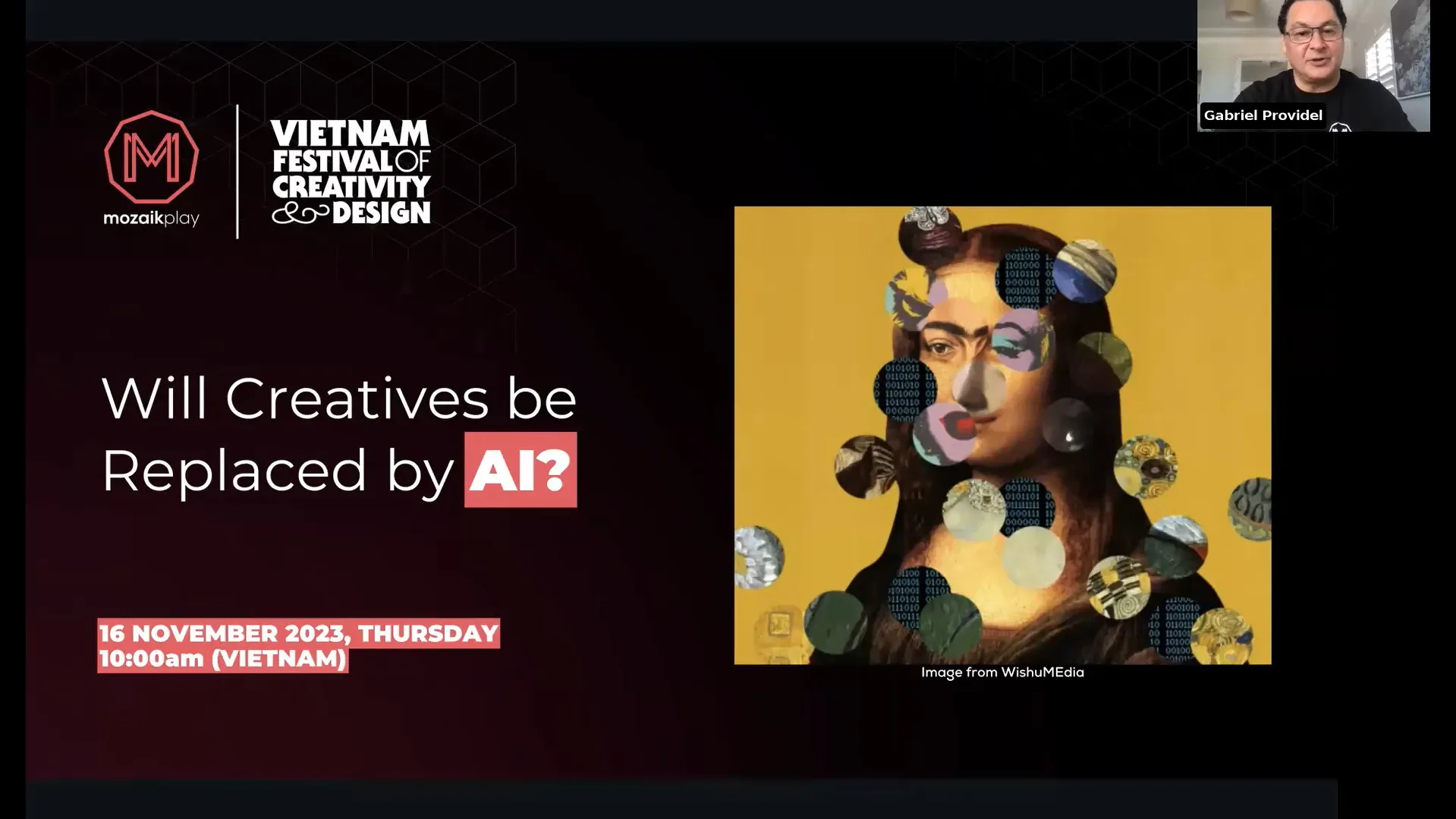Three specialists convened on November 16th to deliberate on the future prospects of the creative job market. Mr. Gabriel Providel, the CEO and founder of Mozaik Play, a creative learning platform for students, led the discussion. The other two speakers were Mr. Le Anh Dy, the founder and CGI Director of Blank Negatives, a visual effects business located in Saigon, and Ms. Melissa Best, the head of programming at Think Tank Teaching Center in Canada.
The main theme of the talk—what role do humans play if generative AI can produce new content and data with little to no human input?—was addressed at the beginning of the presentation with an explanation of the differences between generative AI and standard AI.
Ms. Melissa Best discussed how AI astounded her in a number of ways, from producing eye-catching visuals to efficiently recreating the appearance and feel of a piece of footage, which boosts productivity. She also emphasized the value of the skills that are specific to humans and that AI cannot imitate. Melissa believes that in order for us to understand AI’s advantages and disadvantages, we must study more about it.
To Dy Le, AI is a part of his daily life and his line of work. For him, artificial intelligence is a tool that will enable him to produce work more quickly and efficiently with higher quality. Verifying if AI is being used as intended may be one of the finest ways to help Dy and other creatives.
AI has greatly benefited the panelists’ job, facilitating tasks like program verification and debugging, which speeds up the game creation process. A fascinating query that came up throughout the discussion was: In what domains does AI perform better than humans? According to Dy, AI’s strength lies in its ability to produce a large number of works of art quickly, which helps him with his films, concerts, and other creative endeavors.
Returning to the primary questions, what use do humans have if AI is already capable of so much? According to Dy Le, direction is something that AI lacks and will never be able to replace. Dy demonstrated to us how he allows his students to use AI technologies like Mid Journey. Dy recognized that the job was completed, but he was unable to identify the students’ personal tastes or direction. According to Melissa Best, artificial intelligence is unable to mimic the nuanced emotions that people feel and incorporate into digital or physical products.
The facilitator, Mr. Gabriel Providel Providel, stated that, ideally in that order, a skilled person combined with a potent machine is the most powerful power in the world at the moment. He posed a challenging question to the panelists regarding the ethical aspects of applying AI. The creative industry continues to work together to develop ways to control the application of AI. The discussion about how to build a pipeline that turns AI into a helpful tool for creatives rather than viewing it negatively is still going on. In order to accomplish this, it is critical that we collaborate to make it accessible to the greatest number of individuals so that more people can learn the truth about artificial intelligence.
The discussion concluded with what creatives can do now to be relevant in this rapidly evolving technological landscape. Acquire new skills, modify and refresh processes that use AI, and learn new tools. Artificial intelligence won’t replace creativity; instead, people who do not use AI will be replaced by those who do.
Rewatch the talk below:
